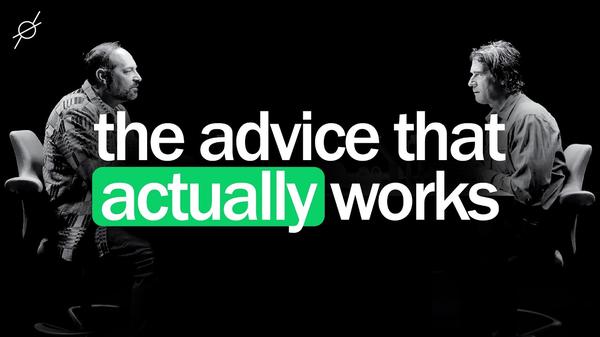
#1 Happiness Doctor: The HIDDEN Symptom Stealing Your Joy & How To Get It Back | Dr. Judith Joseph
Rich Roll
May 12, 2025
Mindsip insights from this episode:
Redefine trauma to reshape self-perception and interactions
Trauma is not just a life-threatening event but anything so psychologically significant that it shapes how you view yourself and interact with the world.
Recognize masochistic narcissism in high-achievers to foster balance
High-achievers can exhibit masochistic narcissism, believing they are the only ones who can do it right (narcissism) while constantly overworking and delaying pleasure (masochism).
Challenge all-or-nothing thinking to manage high-functioning depression
People with high-functioning depression often have "all or nothing thinking," where the suggestion to "slow down" is misinterpreted as having to "stop completely," which feels threatening.
Shift psychiatry focus from crisis to prevention
Psychiatry is criticized for being in the "dark ages" by waiting for people to be in crisis, unlike other medical fields like longevity that focus on prevention.
Enhance brain connectivity to combat depression
The modern view of depression is less about a chemical depletion and more about a lack of healthy brain connectivity, or neuroplasticity, which can be improved by experiences like meditation.
Recognize and address zoom fatigue to improve well-being
Stanford has a "Zoom Fatigue Center" studying the unnatural and stressful phenomenon of constantly seeing yourself on screen, which is similar to the autoscopic phenomenon seen in psychosis.
Utilize psilocybin to address postpartum depression and enhance mother-child bonding
Cutting-edge, DEA-licensed research is studying the use of psilocybin for postpartum depression to provide quicker solutions that help mothers bond with their children.
Recognize anhedonia as a sign of high-functioning depression
A key sign of high-functioning depression is anhedonia, a lack of pleasure in things that used to bring you joy, which is considered a crisis because humans are built with a DNA for joy.
Expand understanding of depression beyond serotonin and dopamine
The modern understanding of depression is moving beyond just serotonin and dopamine to include calming neurotransmitters like GABA, as it's difficult to be joyful when you're tense.
More from
Rich Roll
#1 Nutrition Scientist: This Is Why You Struggle To Lose Weight | Kevin Hall, PhD
This Is How You Start Over Stronger: A Reinvention Masterclass | Gregg Renfrew
Surviving Your Rock Bottom
The Quarterback Who Lost Himself In Drugs & Found Himself In Love | Todd Marinovich
#1 Time EXPERT: Being “Productive” Is Making You MISERABLE | Oliver Burkeman
You also might be interested in
The Hidden Damage That Happens "Behind-The-Scenes" In The Adult Entertainment Industry, With Former Adult Actress Felicity Feline
How to Set & Achieve Goals | Huberman Lab Essentials
The Science of Erotic Altered States | Biohacking Sex
Neuroscientist: If You’re Feeling THIS, You’ve Lost Touch With Your True Self
Neuroscientist: If You Feel THIS, You're Living the Wrong Life (Unlock The One You're Meant For)











